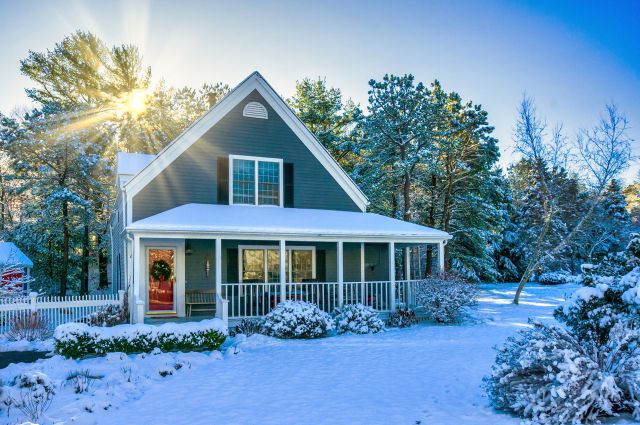With temperatures expected to dip into the single digits this week, homeowners across the Northeast might be worried about the potential for winter-related damage to their properties – and rightly so: In 2022 alone, cold weather and winter storms caused nearly $6 billion in insured losses in the United States, according to the Insurance Information Institute.
The most common types of insurance claims related to severe winter weather include frozen pipes, ice dams building up along roof edges, damage from falling trees and limbs and even house fires.
Fortunately, a few preventive measures can reduce the risk of a winter catastrophe, starting with a review of your existing homeowners insurance policy to ensure any potential disaster is covered. Water damage from a leaking pipe or an ice dam that sends water through the roof may be covered by a typical homeowners policy. But flooding caused by other events, such as rapid snow melt, may require a separate flood insurance policy.
“‘Winter storms are not typically thought of as natural disasters, but they can cause significant damage in the Northeast,” said Greg Smolan, vice president of insurance operations for AAA Northeast. “Taking preventive measures will help minimize the risk associated with winter weather.”
AAA Insurance recommends that all homeowners take these steps to effectively winterize their homes for safety and to avoid costly repairs:
- Clear gutters and downspouts of debris to allow melting snow and ice to flow freely. To help prevent ice dams from forming, keep the attic well-ventilated and the attic floor well-insulated. Heat tape may also help prevent ice buildup and can facilitate melting.
- To prevent pipes from freezing and bursting, insulate exposed pipes, seal cracks in outside walls near pipes, keep cabinet doors on exterior walls open and keep a slow trickle of water flowing through unprotected pipes during cold spells.
- Know the location of the main water shutoff valve: If your pipes freeze, the faster you shut off the water, the better chance you have of preventing them from bursting and causing major damage.
- Ensure your heating system is up to snuff by having the furnace, boiler or chimney serviced at least once a year. Be sure to have ducts, vents and filters inspected.
- Check your smoke and carbon monoxide detectors: Residential fires and carbon monoxide poisonings increase in the winter as people rely on indoor fires and heating systems. Detectors should be checked at least twice a year.
- Follow all safety guidelines when using supplemental space heaters to prevent electrical fires or fires caused by the placement of heaters too close to flammable materials.
- Trim trees and remove dead branches: Ice, snow, wind and rain can cause weak trees and tree limbs to fall and damage your car or home – or fall on people walking on or near your property.
- Clear your driveway and walkway of snow as soon as possible to prevent slips and falls.






